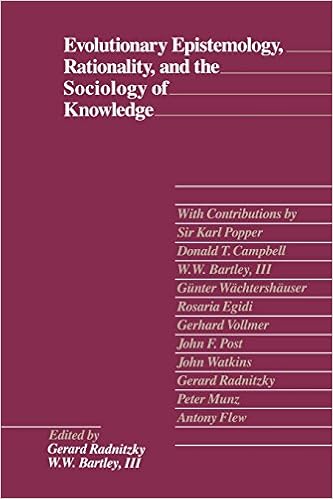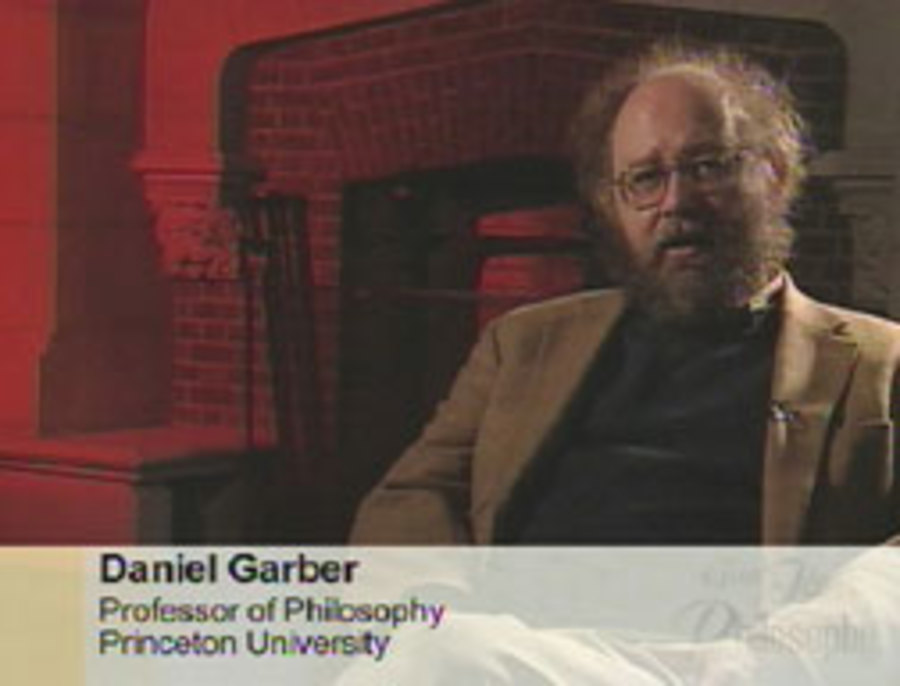Definition of Epistemology
-
Epistemology: Internet Encyclopedia of PhilosophyThe purpose of the IEP is to provide detailed, scholarly, peer-reviewed information on key topics and philosophers in all areas of academic philosophy. The Encyclopedia’s articles are written with the intention that most of the article can be understood by advanced undergraduates majoring in philosophy and by other scholars who are not working in the field covered by that article. The IEP articles are written by experts but not for experts in analogy to the way the Scientific American magazine is written by scientific experts but not primarily for scientific experts.
On the Shelf from CCBC Libraries
-
Big Mind by A new field of collective intelligence has emerged in the last few years, prompted by a wave of digital technologies that make it possible for organizations and societies to think at large scale. This "bigger mind"--human and machine capabilities working together--has the potential to solve the great challenges of our time. So why do smart technologies not automatically lead to smart results? Gathering insights from diverse fields, including philosophy, computer science, and biology, Big Mind reveals how collective intelligence can guide corporations, governments, universities, and societies to make the most of human brains and digital technologies. Geoff Mulgan explores how collective intelligence has to be consciously organized and orchestrated in order to harness its powers. He looks at recent experiments mobilizing millions of people to solve problems, and at groundbreaking technology like Google Maps and Dove satellites. He also considers why organizations full of smart people and machines can make foolish mistakes--from investment banks losing billions to intelligence agencies misjudging geopolitical events--and shows how to avoid them. Highlighting differences between environments that stimulate intelligence and those that blunt it, Mulgan shows how human and machine intelligence could solve challenges in business, climate change, democracy, and public health. But for that to happen we'll need radically new professions, institutions, and ways of thinking. Informed by the latest work on data, web platforms, and artificial intelligence, Big Mind shows how collective intelligence could help us survive and thrive.
Call Number: Q337.3 .M84 2018 -
The Challenge of Rousseau by Written by prominent scholars of Jean-Jacques Rousseau's philosophy, this collection celebrates the 300th anniversary of Rousseau's birth and the 250th anniversary of the publication of Emile. The depth and systematic character of Rousseau's thought was recognized almost immediately by thinkers such as Kant and Hegel, yet debate continues over the degree to which Rousseau's legacy is the result of poetic, literary or rhetorical genius, rather than of philosophic rigor or profundity. The authors focus on Rousseau's genuine yet undervalued stature as a philosopher. This collection includes essays that develop some of the complex problems Rousseau treated so radically and profoundly, as well as essays on the vigorous debates he engaged in with thoughtful contemporaries and predecessors.
Call Number: B2137 .C43 2013 -
The Cambridge Companion to Kant's Critique of Pure Reason by Immanuel Kant's Critique of Pure Reason, first published in 1781, is one of the landmarks of Western philosophy, a radical departure from everything that went before and an inescapable influence on all philosophy since its publication. This Companion is the first collective commentary on this work in English. The seventeen chapters have been written by an international team of scholars, including some of the best-known figures in the field as well as emerging younger talents. The first two chapters situate Kant's project against the background of continental rationalism and British empiricism, the dominant schools of early modern philosophy. Eleven chapters then expound and assess all the main arguments of the Critique. Finally, four chapters recount the enormous influence of the Critique on subsequent philosophical movements, including German Idealism and Neo-Kantianism, twentieth-century continental philosophy, and twentieth-century Anglo-American analytic philosophy. The book concludes with an extensive bibliography.
Call Number: B2779 .C25 2010 -
Epistemology by Volume II of Alan Muir's trilogy GOLDEN GIRLS published before 1923. It may have occasional imperfections such as missing or blurred pages, poor pictures, errant marks, etc. that were either part of the original artifact, or were introduced by the scanning process. We believe this work is culturally important, and despite the imperfections, have elected to bring it back into print as part of our continuing commitment to the preservation of printed works worldwide. We appreciate your understanding of the imperfections in the preservation process, and hope you enjoy this valuable book. The below data was compiled from various identification fields in the bibliographic record of this title. This data is provided as an additional tool in helping to ensure edition identification.
Call Number: BD161 .B585 2010 -
 Evolutionary Epistemology, Rationality and the Sociology of Knowledge
by
This is a collection of essays by the leaders of what has been called the most important development in the theory of knowledge since the 18th century: namely evolutionary epistemology. The motif for this volume is struck in Bartley's opening chapter: Philosophy of biology versus Philosophy of Physics and is continued in Sir Karl Popper's Darwin lecture, Donald T. Campbell's application of Darwinian theory to creative thought processes, and in the debate over the theories of Campbell and Gunter Wachtershauser on the origins of vision.
Call Number: BD161 .E86 1987
Evolutionary Epistemology, Rationality and the Sociology of Knowledge
by
This is a collection of essays by the leaders of what has been called the most important development in the theory of knowledge since the 18th century: namely evolutionary epistemology. The motif for this volume is struck in Bartley's opening chapter: Philosophy of biology versus Philosophy of Physics and is continued in Sir Karl Popper's Darwin lecture, Donald T. Campbell's application of Darwinian theory to creative thought processes, and in the debate over the theories of Campbell and Gunter Wachtershauser on the origins of vision.
Call Number: BD161 .E86 1987
Streaming Videos
-
Epistemology: What We Can Know This program travels from Plato’s cave to Gettier’s papier-mâché barns while addressing, along the way, questions such as: What does it mean to really know something? How can one know that one knows it? And is seeing the same thing as believing? Deconstructing the principles of epistemology are Rutgers University’s Alvin Goldman and Peter Klein and Princeton University’s Alexander Nehamas and Daniel Garber.
What is Epistemology?
Library Databases
-
Academic Search Premier This link opens in a new window

Articles on any subject. This is a good place to start.
-
Arts & Humanities Database

Articles on arts including visual arts, architecture, design, music, literature, and theatre,
and humanities including history, philosophy, and cultural studies. -
Humanities International Complete This link opens in a new window

Articles and ebooks about humanities topics like arts, history, language, law, literature, philosophy, and politics.
-
JSTOR This link opens in a new window

Journals, books, images, and primary sources about many subjects.
-
Opposing Viewpoints This link opens in a new window

Viewpoint essays, topic essays, and news and magazine articles on controversial issues. Browse for topics or search.
-
Social Science Database

Articles on social science topics like communication, criminology, economics, education, political science, psychology, social work, and sociology.
Online from CCBC Libraries
-
Thinking Critically: What Does It Mean? by Analyses of the dynamics of change present in Europe are not complete without taking into account the role and function of the critical approach as a founding element of European culture. An appreciation of critical thinking must go hand-in-hand with reflection on its essence, forms, and centuries-long tradition. The European philosophical tradition has thematized the problem of criticism since its appearance. This book contains articles on the history of philosophical criticism and ways that it has been understood in European thought. Individual chapters contain both historical-philosophical and problem-oriented analyses, indicating the relationships between philosophical criticism and rationalism, logic, scepticism, atheism, dialectic procedure, and philosophical counseling, among others. Philosophical reflection on critical thinking allows for an acknowledgment of its significance in the fields of epistemology, philosophy of politics, aesthetics, methodology, philosophy of language, and cultural theory. The book should interest not only humanities scholars, but also scholars in other fields, as the development of an anti-dogmatic critical approach is a lasting and indispensible challenge for all disciplines.
Publication Date: 2017-11-07 -
The Four Types of Knowing by The history of thought may be viewed as a series of ongoing attempts to determine the nature of the true, the real, the beautiful and the good. Today, a wide variety of competing approaches and derivative movements of thought vie for attention, for example: positivism, naturalism, criticalrealism, critical rationalism, existentialism, humanism, pragmatism, postmodernism andconstructivism, to name but a few. The problem that this work addresses is how to make sense ofit all. For this purpose a set of archetypal and dynamically interrelated orientations that shape the human intellectual endeavor is proposed. A meta-theory that juxtaposes basic orientations or predispositions of mind is introduced and shown to be plausibly and consistently applicable to different bodies and levels of thought across different cultures (specifically: Western, Eastern and African thought).
Publication Date: 2011-01-27 -
Shifting Ground by This volume of essays by Naomi Scheman brings together her views on epistemic and socio-political issues, views that draw on a critical reading of Wittgenstein as well as on liberatory movements and theories, all in the service of a fundamental reorientation of epistemology. For sometheorists, epistemology is an essentially foundationalist and hence discredited enterprise; for others - particularly analytic epistemologists - it remains rigorously segregated from political concerns. Scheman makes a compelling case for the necessity of thinking epistemologically in fundamentallyaltered ways. Arguing that it is an illusion of privilege to think that we can do without usable articulations of concepts such as truth, reality, and objectivity, she maintains (as in the title of one of her essays) that epistemology needs to be "resuscitated" as an explicitly political endeavor,with trustworthiness at its heart.While each essay contributes to a specific conversation, taken together they argue for addressing theoretical questions as they arise concretely. Truth, reality, objectivity, and other concepts that problematically rest on shifting ground are more than philosophical toys, and the ground-shiftingthese essays enact is a move away from abstruse theorizing-analytic and post-structuralist alike. Following Wittgenstein's injunctions to just look, to attend to the "rough ground" of everyday practices, Scheman argues for finding philosophical insight in such acts of attention and in thedifficulties that beset them. These essays are an attempt to grasp something in particular, to get a handle on a set of problems, and collectively they represent a fresh model of passionate philosophical engagement.
Publication Date: 2011-04-07 -
Epistemology by A comprehensive introduction to the theory of knowledge. Guided by the founding ideas of American pragmatism, Epistemology provides a clear example of the basic concepts involved in knowledge acquisition and explains the principles at work in the development of rational inquiry. It examines how these principles analyze the course of scientific progress and how the development of scientific inquiry inevitably encounters certain natural disasters. At the center of the book's deliberations there lies not only the potential for scientific progress but also the limit of science as well. This comprehensive introduction to the theory of knowledge addresses a myriad of topics, including the critique of skepticism, the nature of rationality, the possibility of science for extraterrestrial intelligences, and the prospect of insoluble issues in science.
Publication Date: 2003-01-01 -
An Introduction to the Philosophy of Mind by Manual on campaign strategy of regional elections; case study in Jakarta, Jawa Barat, and Jawa Tengah Provinces.
Publication Date: 2000-01-01
